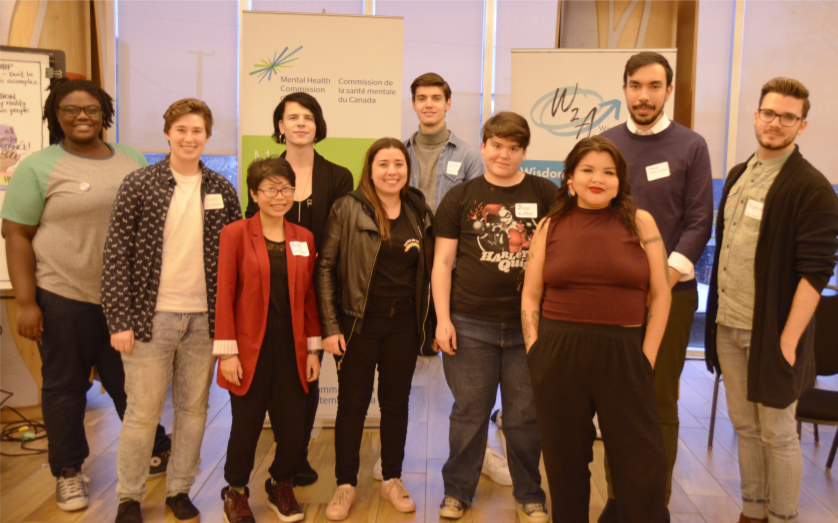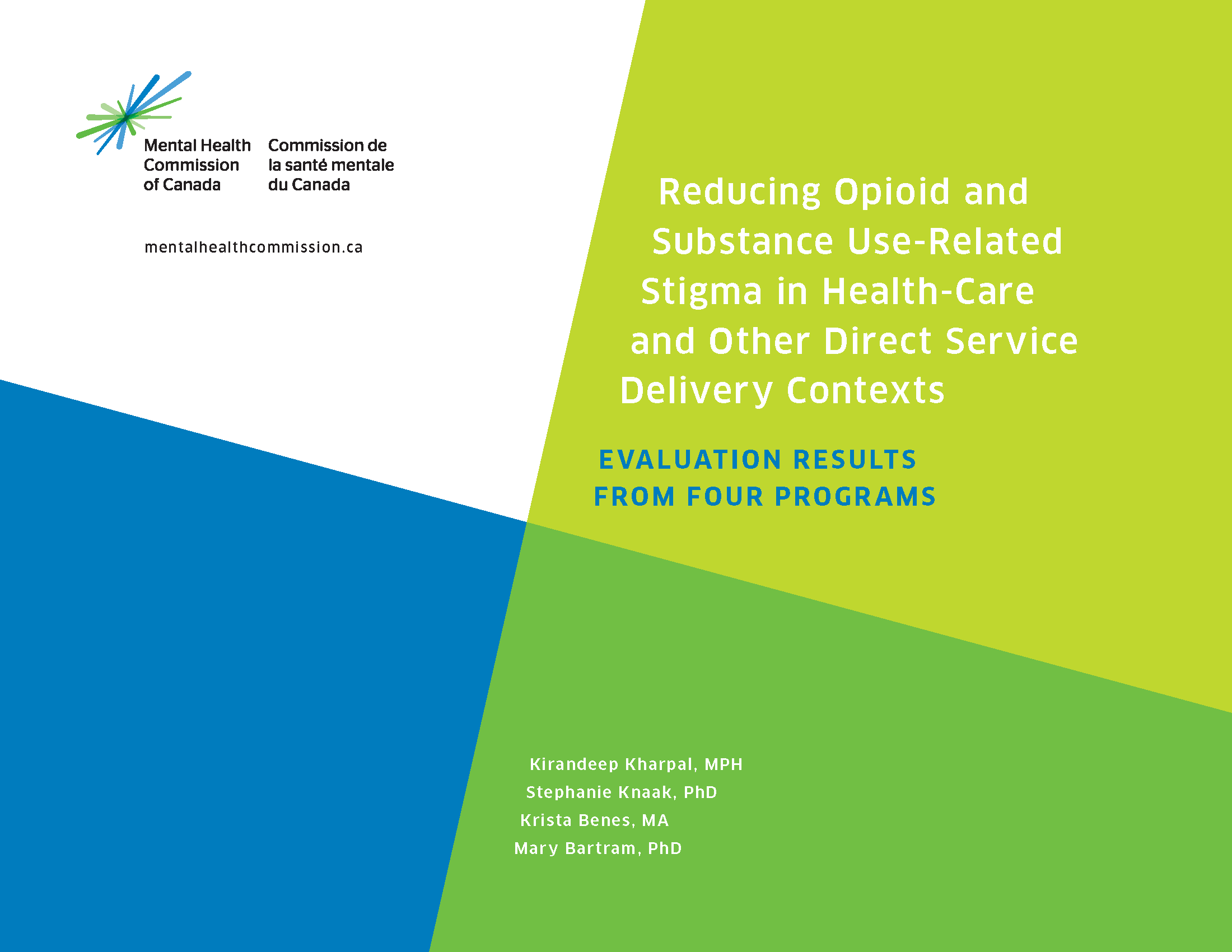If you are in distress, you can call or text 988 at any time. If it is an emergency, call 9-1-1 or go to your local emergency department.
- Public Resources, Reports
Creating Safer Spaces for 2SLGTBQ+ Emerging Adults in Health-care (Forum Report)
MHCC/W2A: Rainbow Youth Health took place at the Wabano Centre for Aboriginal Health in Ottawa, November 8-9, 2018. Two-Spirit, lesbian, gay, bisexual, trans, and queer (2SLGBTQ+) emerging adults face particular challenges that put their mental health at greater risk, including significant barriers to health-care access. To support the larger goal of increasing health-sector access and improving the service-user experience for 2SLGBTQ+ emerging adults, the MHCC and W2A hosted a pan-Canadian forum aimed at creating safer spaces in health-care settings. Created and hosted in partnership with 2SLGBTQ+ emerging adults between 18 and 30, the forum provided a platform for young people to amplify their voices. Across Canada, 2SLGBTQ+ individuals, allies, communities, organizations, and health-care professionals are addressing these issues through programs, services, and research. Young people play an important role in identifying the problems and solutions. Youth know the pathways to their own wellness and life enhancement. They lead programs in their communities that support other young people. They provide important peer support, both formal and informal. They are advocates for themselves and their communities. Participants at the forum travelled to Ottawa from across Canada to share initiatives and approaches to increasing health-sector access and improving the service-user experience for 2SLGBTQ+ emerging adults. The discussions focused on youth-led initiatives and perspectives to make an emerging adult’s experience safer and more inclusive. The forum provided participants with an opportunity to share best and promising practices for improving services to those affected by gaps and barriers in accessing health care. Many themes emerged from the rich discussions throughout the day. There was no shortage of ideas when it came to creating safer spaces in healthcare settings for 2SLGBTQ+ emerging adults. There were many commonalities that bridged all of the presentations and conversations. But which recommendations should serve as starting points for action? And what will fulfilling those recommendations actually look like? Below is a list of guiding principles that attendees emphasized should factor into any initiative moving forward. Future work related to 2SLGBTQ+ safer spaces in healthcare should aim for the following: The following themes emerged across participant perspectives, helping to inform four overall recommendations for long-term action:Emerging Themes
Areas for Future Action
- Public Resources, Reports
Creating Safer Spaces for 2SLGTBQ+ Emerging Adults in Health-care (Forum Report)
Creating Safer Spaces for 2SLGTBQ+ Emerging Adults in Health-care (Forum Report)
- 2SLGTBQI+, Children and Youth, Diversity, Health-care
MHCC/W2A: Rainbow Youth Health took place at the Wabano Centre for Aboriginal Health in Ottawa, November 8-9, 2018. Two-Spirit, lesbian, gay, bisexual, trans, and queer (2SLGBTQ+) emerging adults face particular challenges that put their mental health at greater risk, including significant barriers to health-care access. To support the larger goal of increasing health-sector access and improving the service-user experience for 2SLGBTQ+ emerging adults, the MHCC and W2A hosted a pan-Canadian forum aimed at creating safer spaces in health-care settings. Created and hosted in partnership with 2SLGBTQ+ emerging adults between 18 and 30, the forum provided a platform for young people to amplify their voices. Across Canada, 2SLGBTQ+ individuals, allies, communities, organizations, and health-care professionals are addressing these issues through programs, services, and research. Young people play an important role in identifying the problems and solutions. Youth know the pathways to their own wellness and life enhancement. They lead programs in their communities that support other young people. They provide important peer support, both formal and informal. They are advocates for themselves and their communities. Participants at the forum travelled to Ottawa from across Canada to share initiatives and approaches to increasing health-sector access and improving the service-user experience for 2SLGBTQ+ emerging adults. The discussions focused on youth-led initiatives and perspectives to make an emerging adult’s experience safer and more inclusive. The forum provided participants with an opportunity to share best and promising practices for improving services to those affected by gaps and barriers in accessing health care. Many themes emerged from the rich discussions throughout the day. There was no shortage of ideas when it came to creating safer spaces in healthcare settings for 2SLGBTQ+ emerging adults. There were many commonalities that bridged all of the presentations and conversations. But which recommendations should serve as starting points for action? And what will fulfilling those recommendations actually look like? Below is a list of guiding principles that attendees emphasized should factor into any initiative moving forward. Future work related to 2SLGBTQ+ safer spaces in healthcare should aim for the following: The following themes emerged across participant perspectives, helping to inform four overall recommendations for long-term action:
Emerging Themes
Areas for Future Action
SHARE THIS PAGE
RELATED

Review our Assessment Framework for Mental Health Apps — a national framework containing key standards for safe, quality, and effective mental health apps in Canada.

To help expand the use of e-mental health services, we developed four online learning modules based on our Toolkit for E-Mental Health Implementation, in collaboration with the Centre for Addiction and Mental Health (CAMH).

Stepped Care 2.0© (SC2.0) is a transformative model for organizing and delivering evidence-informed mental health and substance use services.

